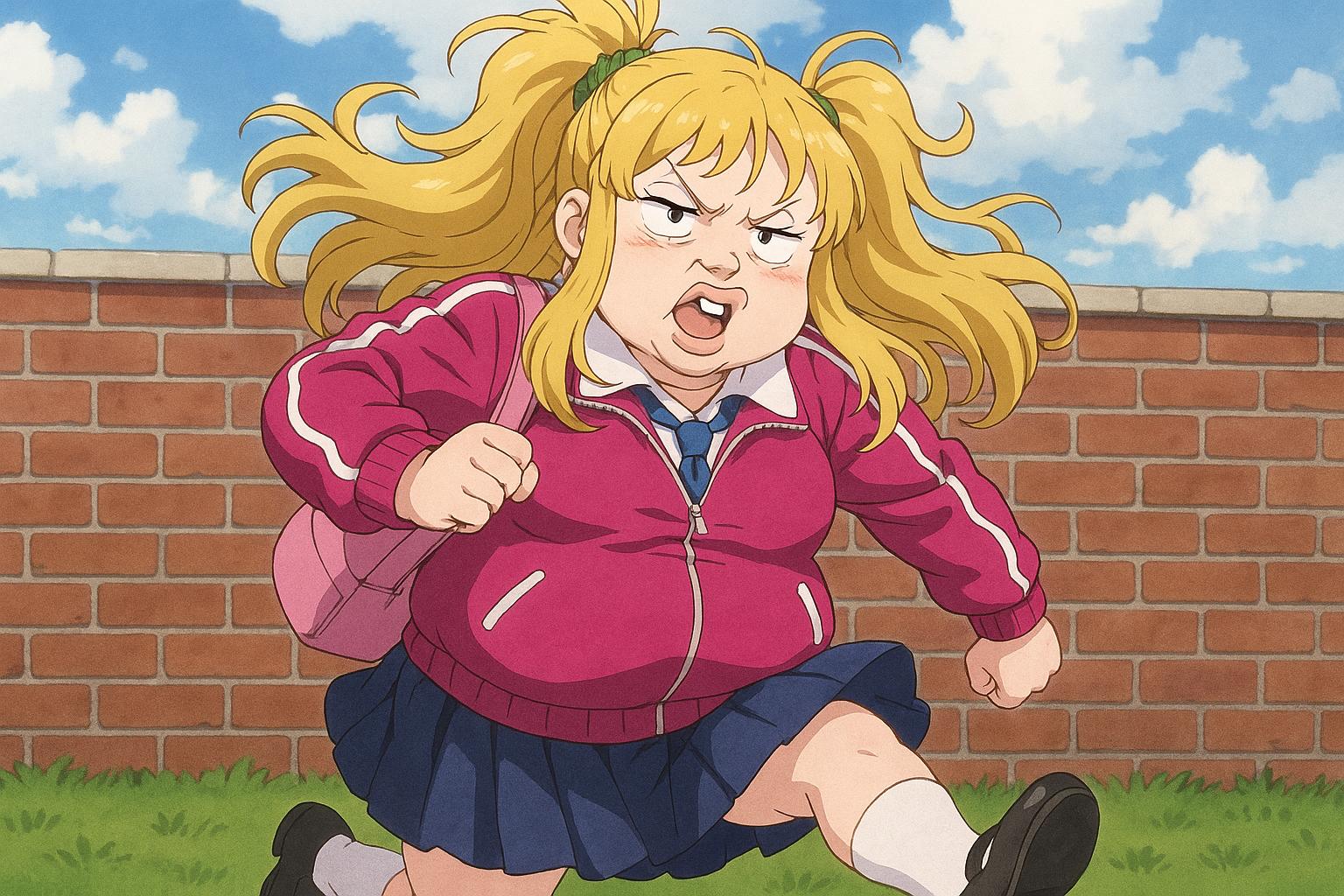In a climate of rapidly evolving social norms and increased sensitivity towards issues of representation and identity, revisiting Little Britain, the early 2000s comedy sensation, presents a complex challenge. Though the show, created by Matt Lucas and David Walliams, was once a staple of British humour with its array of iconic characters, a Gen Z viewer’s experience reveals a rather jarring contrast between nostalgic humour and contemporary values.
Growing up on a diet of classic British sitcoms like Fawlty Towers and Only Fools and Horses, the writer shares a profound curiosity about Little Britain, despite it never having been part of their formative viewing experience. Upon streamlining through the sketches, it became clear that certain aspects of the show have aged poorly, sparking debates about nostalgia and accountability in comedy.
The experience begins with an encounter with Vicky Pollard, the chaotic schoolgirl whose antics reflect the frenetic energy that once captivated audiences. The character’s blend of nonsense and deadpan delivery recalls a familiar humour style, resonating with the writer even as uncertainties about its appropriateness lingered. There is an undeniable charm in how Pollard spins mundane life into wild chaos, encapsulating the manic energy that made her a cult figure. Yet, as the exploration deepens into other sketches, contrasting feelings of discomfort emerge.
Characters like Emily Howard prompt introspection regarding the nature of gender and identity. Emblematic of a bygone era, Emily's insistence on being a "lady" while engaging in dated tropes is emblematic of the show's approach to humour. The humour, rooted in a lack of self-awareness, feels out of step with today’s dialogues around gender fluidity and inclusivity. In this context, the humour appears less as a critique of societal norms and more like reinforcement of outdated stereotypes, a perspective that many modern viewers find challenging to reconcile.
Moreover, a notable sketch pointing to Britain’s binary conception of gender strikes the viewer as particularly tone-deaf in today’s climate, one where discussions around gender identity are prominent. The juxtaposition of earlier comedic practices against current sensibilities raises essential questions about the responsibility of humour in reflecting societal progress, especially as it pertains to sensitive topics like gender and race.
The character dynamics between Lou and Andy showcase the comedic talents of Lucas and Walliams, with their seamless transitions between roles exemplifying classic British comedic timing. Still, as the narrative unfolds, the spectre of earlier controversies looms large. The pair's apology for using blackface in the show highlights the backlash against previous insensitivity in comedy, further underscoring how societal standards have shifted dramatically. Behaviour that was once taken lightly has now brought intense scrutiny, leading to stark withdrawals from major streaming platforms amid public outcry.
Ofcom's 2023 research underscores the persistent concerns surrounding the show, labelling some sketches as "explicitly racist and outdated." The criticism reflects a broader societal evolution in understanding race, identity, and the implications of public representation. The attempt to expose prejudices through satire has not exonerated the creators from accountability, as the emerging consensus invites introspection about media's role in perpetuating harmful stereotypes.
In juxtaposition to these uncomfortable moments, however, elements of Little Britain retain an awkward charm. Laughs emerge unexpectedly in sketches that align with traditional physical comedy — a refreshing deviation from the more contentious interactions. The audience is reminded of the enduring nature of relatable comedy, where humorous observations on daily life provide a gentle reminder of the show's original appeal.
Reflecting on the show's legacy, it becomes evident that Little Britain has left an indelible mark on British comedy. Its characters may have captured the zeitgeist of their time, but revisiting them in 2025 invites a complicated interplay of nostalgia and critical reflection. While some sketches retain their comedic strength, the disconnection between past and present societal values fosters an appreciation of comedy's ability to evolve alongside culture.
Ultimately, revisiting Little Britain serves as a lens through which to view not only the show’s cultural impact but the transformation of humour itself. It highlights how much the social landscape has shifted, illustrating that while comedy can often be messy and chaotic, it should also strive for kind-hearted reflection of our collective humanity.
Reference Map
Source: Noah Wire Services
